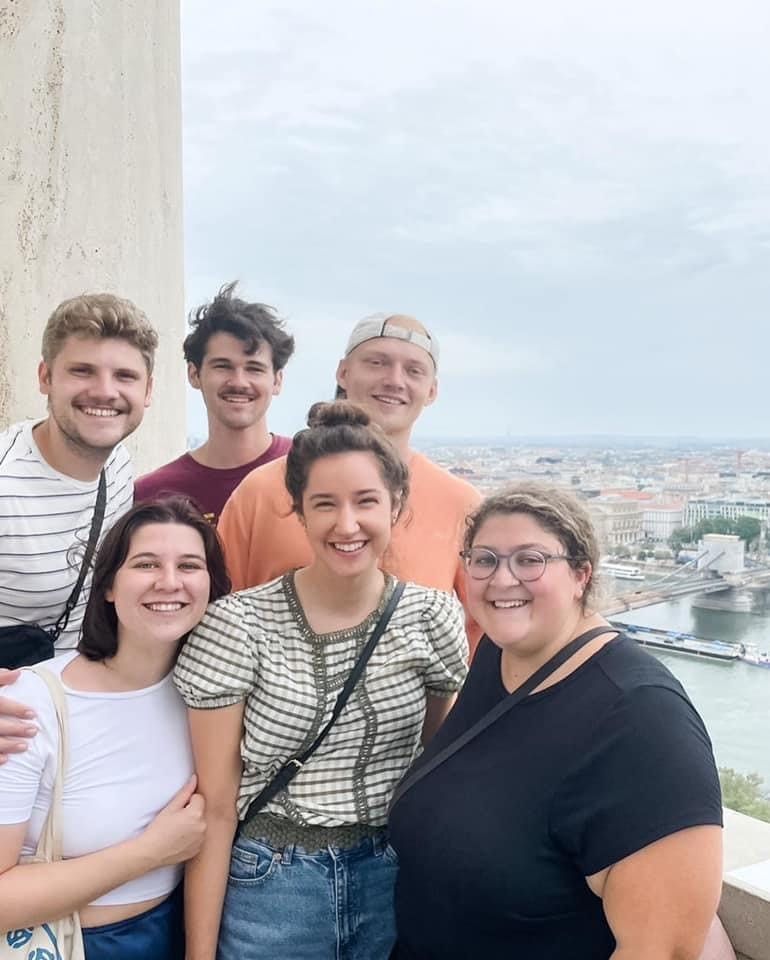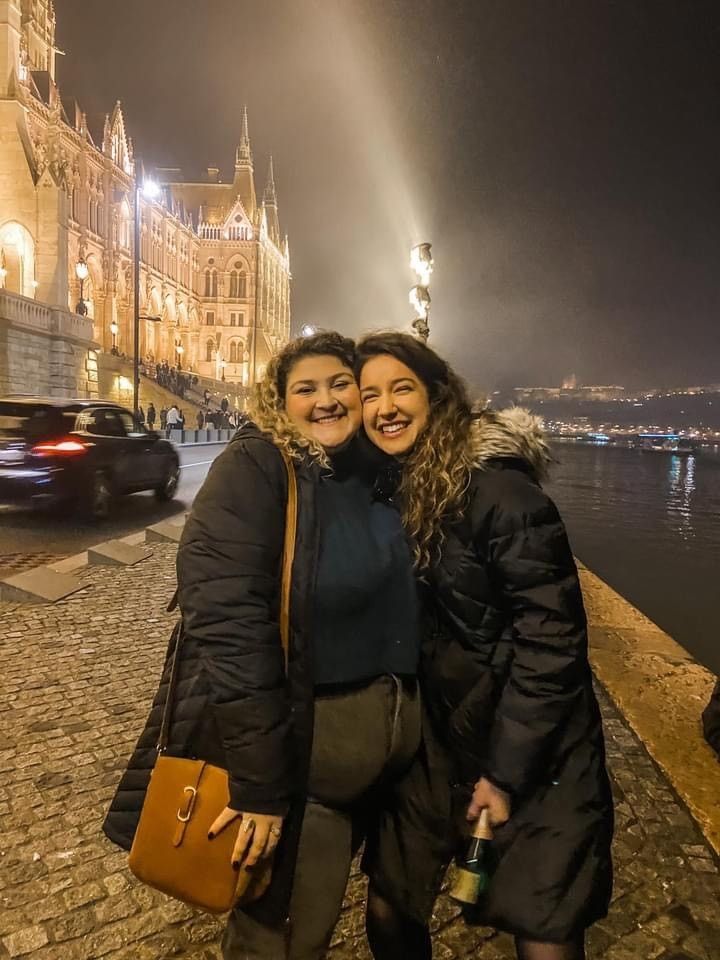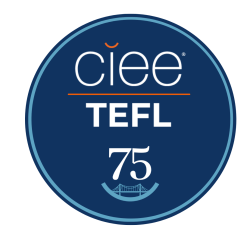Employee Q & A: K-12 Classroom Position in Hungary
Hello! My name is Alyson H, and I am originally from Boston, MA, USA. Both travel and teaching have always been very important in my life, so acquiring a TEFL certification seemed like the perfect way to combine the two passions. I did a lot of travel in South and Central America during university and high school, but not a lot in Europe, so it seemed natural to seek out positions like the one in Budapest, Hungary. Though I had in interest in Spain, due to my background in Spanish, I was looking for an entirely new experience, which Budapest seemed to bring.
The CIEE TEFL 150-Hour Certificate course
Why did you choose to get TEFL certified through CIEE TEFL?
I had been introduced to CIEE in university when looking at study abroad programs. While I did not go through a CIEE study abroad program I was familiar with the company and stayed up to date throughout the remainder of my time in university. When it came time to find a TEFL course and TEFL positions, I began looking at CIEE TEFL as I trusted the company and appreciated the job placement assistance feature, which I hadn’t found in many other companies.
Please describe your experience in the course.
I thoroughly enjoyed my course and have found the content to be very helpful thus far. My instructor was always available through Canvas and provided very enriching weekly lessons. If we were unable to attend the live sessions, she would promptly upload a recording of the lecture, so we would still be able to access the content. I found the course load to be very manageable, especially since I took my course while I was working. Additionally, my instructor would always provide a plethora of resources for us that went along with each module. These resources ranged from PowerPoints, articles, and sample lessons – all of which proved to be exceptionally helpful when completing quizzes and assignments.
Has the course been helpful in your current teaching position?
Currently, I employ many of the teaching methods we learned about during my TEFL course. When I began the course, I wasn’t sure what exactly to expect. Having already had a lot of classroom experience under my belt, some of which was EFL related, I didn’t think there would be a ton of new information. In actuality, this course did a great job of bridging my existing knowledge and skills with new tactics. Though it may seem obvious, teaching native speakers and teaching English learners is very different. I occasionally still refer back to my notes from the course for tips on teaching vocabulary or encouraging student interaction.
The Hiring Process
Please describe how your experience was throughout the hiring process and leading up to your departure for Hungary?
The hiring process through my employer was incredibly easy and streamlined. Since I had applied to the position in conjunction with my TEFL course, I was almost immediately put into contact with the recruit and hiring manager to arrange a Zoom interview. The initial interview was where I learned more about the company and the basics of what my role would, as well as what compensation I would receive. A lot of this interview also centered around my previous experiences as well as what my teaching preferences were. After this, I had a second interview with our Head of Education. This interview was much more about who I was as a teacher (my experiences, current techniques and routines, teaching philosophies, etc.). It was at the end of this interview where I received an informal, verbal offer. The official offer came over email shortly after.
Once I was officially hired, I worked closely with the HR department in completing any and all immigration/Visa paperwork. Even with the six-hour time difference, HR was very responsive and communicative. Leading up to my departure for Hungary, they sent me all the information about my apartment and my airport pickup, so I was very prepared for what waited for me once I arrived.

Arrival in Country
Please describe how your experience right as you arrived (what kind of support did you receive from our partners, anything that surprised you, things folks should have in mind/expect within the first 2 weeks of arriving)
Upon arriving in Hungary, I was picked up from the Budapest Airport by two of the company staff members. It just so happened that two other incoming teachers were arriving at the same time as me, so I fortunately got to meet some colleagues early.
Once we arrived to my apartment, I was met with yet another company employee who helped me settle into my apartment. She gave me short rundown of my neighborhood (what transportations stops, stores, restaurants, etc. were nearby), helped set up my company phone and transportation pass, and handed over the keys.
Most people arrive to Budapest about one to two weeks before orientation begins, so for the first week or two that you live there, you may not know anyone aside from your roommate. I took this time to explore as much as possible. I walked everywhere around my neighborhood and tried to wrap my head around the public transportation types and routes. Budapest is a surprisingly large city with tons to do, so it’s very tempting to try and do it all. I would recommend taking it slow – really settle in and get comfortable in your neighborhood, you’ve got all year for the rest of the city.
The Job Placement
Please describe your teaching position (what age are your students, are you a lead teacher or do you work with co-teachers, how many students do you have in your classroom/ how many students do you teach each week, do you have small groups/private classes, etc.)
I am an Upper Primary Main English and Main Class teacher. I teach one sixth grade (12 years old) and one seventh grade (13 years old) class. I am the Main Class Teacher for grade six, which means I not only teach them English six times a week, but I also handle their report cards, parent teacher conferences, End of Year videos, field trips, and more. While I am the Main English Teacher for grade seven, I am not their Main Class teacher, so I only handle their six English lessons a week. For both grade six and grade seven, I work with both English and Hungarian co-teachers. For our regular English coursebook lessons, I work with a Hungarian teacher to plan lessons, however we split the class in half and teach in separate classrooms. For our Cambridge and Civilization lessons, I follow the same style just with a native speaking co-teacher. If I were a subject teacher (math, science, art, history, etc.), I would plan and teach with a Hungarian co-teacher following the bilingual family model.
This year my classes are quite small. I have eighteen students in grade six and fourteen students in grade seven; because we split our classes, I typically have nine and seven students at a time respectively. Though we teach six lessons a week, we also have small group lessons in the afternoon called Tutorials. These are thirty-minute lessons with four to six students where we are able to target specific aspects of what we’ve learned in class that week. Students in grades one to six participate in Tutorials, however grades seven and eight have two forty-five-minute FCE lessons a week, which helps prepare students for the FCE exam.
Please describe a typical workday.
Typically, I get to school around 7:30am for an 8:00am start time. I like to use this time to prepare materials for the day (printing, adjusting PPTs, etc.), as well as eat breakfast or have a coffee. Though teachers do not need to be at school until 7:45 if they start at 8:00, I like having a little extra time in the morning. In an average day I will have two to four lessons, one to two planning sessions, and two tutorial groups. We do not have the same schedule each day, so it does vary Monday through Friday. Some lessons will meet every day, but others may only meet once or twice a week depending on the subject. Most days I leave school between 2:30pm and 3:00pm. Our contracted work hours are 7:45 to 4:30 but we follow a flexitime system so on most occasions we can arrive or leave according to our teaching schedule.
What are your favorite parts/perks of your job placement?
Though all of our teachers have a TEFL certification, each teacher that joins goes through a three-week orientation where we talk about CLIL teaching methods as well as co-teaching. Additionally, each school has a teacher trainer who works with you throughout the year in different professional development workshops. This year I have had the privilege of participating in an accelerated, advanced CLIL course which built upon the skills I learned in orientation. We have also began employing Computational Thinking techniques in our lessons, so we have attended sample lessons and workshops regarding incorporating CT in our lessons.
One of my favorite parts of my placement is the House System. As I work with our Upper Primary students, I get to participate in the House System. Each of our UP students is assigned to a house (Lions, Otters, Eagles, and Kookaburras) once they enter grade 5, and they work throughout the year to accumulate house points. Students can earn these through good behavior, doing exceptionally well in a lesson, winning games, or attending House Events and camps. Each month we come together as an Upper School for a different themed event – this could be something like a dodgeball tournament, a lacrosse game, a quiz bowl, or a boardgame bonanza! It's great to see the kids, of all grades, come together and interact with them outside of the classroom.
How was your overall experience with support you’ve received from our partners?
Throughout my two years year, I have received immense support from my employer across all mediums. I work a lot with my teacher trainer, and her support is something I greatly value and couldn’t work without. Whether it’s just getting new ideas or finding new ways to tweak existing lessons, she is always there to help. Our program manager and coordinator also do so much behind the scenes work to keep the program running day to day.

Living Abroad
Housing- what does your housing situation look like? Do you live alone or do you have roommates? If housing is not provided by your employer, how was the housing search? How much (approximately) do you have to pay for rent?
Every employee has the option to choose company housing or cash housing. Personally, I have been in, and will continue to be in, company housing. This means that my employer finds and sets up an apartment for you and one other person; my employer handles all the bills, so all you need to do is live! The company housing stipend is about 150,000 ft, which is automatically removed from your paycheck each month. In my first year I lived with a random teacher from the company, but in my second year I was able to look at what other company apartments were available, and I moved in with a friend. While cash housing allows you to search for your own apartment or live alone, I really appreciate the ease of having my employer deal with rent and utility payments.
Language Barrier- How has your experience been with navigating the language barrier? What things have you done to learn the language (if any)? What tools can you recommend to help other folks navigate the language barrier?
As with most major cities, you will find that many people speak English at a basic level at the very least. When you get to the more suburban, city outskirts you’ll find less people that speak English, but most of the time you’re able to communicate in English. When I first moved to Budapest, I put together a list of common phrases I used in English and their Hungarian equivalents. On my own I worked really hard to learn those phrases and began using them when I could. In my first year, the company sponsored us (who signed up) to participate in a beginner Hungarian course. This course met twice a week for six weeks and was very beneficial. While I did work on my own to learn Hungarian, it was great to meet with a teacher and break down the language. Since the course finished, I have continued using the coursebooks as well as online resources like Duolingo and Drops. I’ve found that Hungarians are very appreciative of when you try to use Hungarian and are patient when you fumble your way through – Hungarian is hard and like no other, so it is impressive to even begin trying to learn.
Personal Safety- do you feel safe in Budapest? Any personal safety concerns?
As for as safety goes, this is by far the safest city I’ve ever been in. As always, you should be aware of your belongings and surroundings, however I’ve never encountered any issues. There have been instances where I’ve arrived home late from the airport or train station and traveling back to my apartment at 1am feels the same as traveling at 1pm. People tend to keep to themselves here and there is a very big culture of privacy and respect. Even though Budapest is beginning to get more and more tourists, the friendly nature of the city prevails.
Opportunities for travel – How is the work-life balance in your job placement? Are there good opportunities to travel and explore? What trips/travel excursions have you done so far/planning to do?
Though we work Monday to Friday, forty-hour weeks, I’ve still managed to find quite a lot of time to travel and do excursions outside of work. We follow the Hungarian national calendar, so each year we have an autumn break, a winter break, and a spring break. Each of these breaks is about one to two weeks. In addition to these breaks, we have the Hungarian National holidays off, which occasionally lead to three-day weekends. In additional to the in-school breaks, we have our summers “off”, as we don’t need to be in the city and can work remotely on different projects. Budapest is quite centrally located and well connected, so it’s easy to get cheap flights to places or take the train or bus on a weekend trip. I’ve managed to explore most of Hungary’s neighboring countries as well as countries like France, Germany, Belgium, the UK, and others. One of my favorite trips was my fall break trip to Istanbul, Turkey this year. I had never imagined that I’d get to visit Turkey in my lifetime, and it was incredible to do so. This summer I am planning to interrail through the Baltic countries.

I have had such an incredible time living and teaching in Hungary. Becoming TEFL certified through CIEE was one of the best decisions I could have made; if it weren’t for CIEE TEFL, I’m not sure I would’ve found this position. Teaching in Hungary is not like a typical TEFL position where you may only be in school for two to three hours a day – we are full staff members of our schools and are treated like we were Hungarian teachers. Coming from an education background, this is an environment that I love and thrive in.
Next year I will be staying in Budapest for a third year, and I couldn’t be more excited. It’s been so great to see my students continue to learn and grow over the past two years, as work with such a close knit teaching team!

